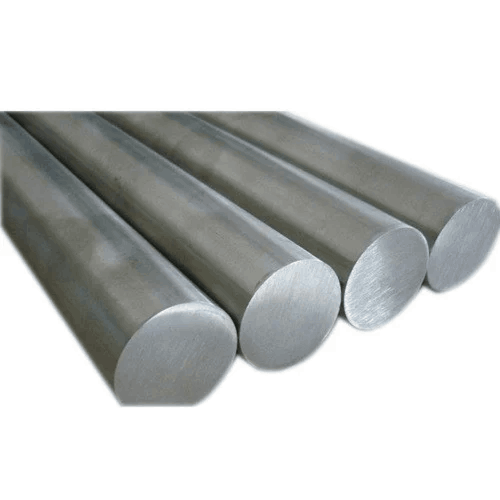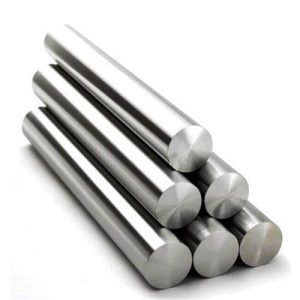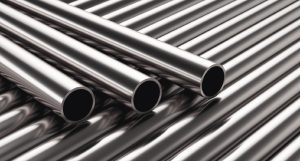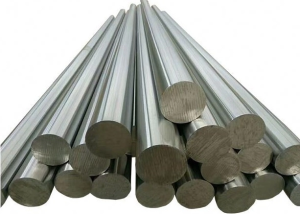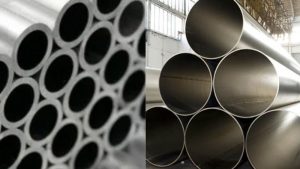In the world of engineering and metallurgy, material selection plays a crucial role in determining the durability, efficiency, and performance of a system. Among the many alloys used in demanding industries, Monel 400 Rod has gained significant importance due to its excellent strength, corrosion resistance, and thermal stability. This unique alloy is widely chosen for critical applications in marine, chemical, oil & gas, and power generation industries.
This blog explores the properties, uses, and advantages of Monel 400 Rod, making it clear why this alloy remains an industry favorite.
What is Monel 400?
Monel 400 is a solid-solution alloy composed primarily of nickel (about 67%) and copper (about 23%), along with small amounts of iron, manganese, carbon, and silicon. It was developed to provide superior resistance to corrosive environments and maintain strength even under extreme conditions.
When processed into Monel 400 Rod, the alloy takes the form of a high-strength, corrosion-resistant rod used across various sectors for structural and functional applications.
Key Properties of Monel 400 Rod
The performance of Monel 400 Rod is attributed to its unique set of properties:
- Corrosion Resistance
- Excellent resistance to seawater, salt, and brine solutions.
- Performs exceptionally in acidic and alkaline conditions.
- Resistant to hydrofluoric and sulfuric acids under controlled conditions.
- Mechanical Strength
- High tensile and yield strength.
- Maintains durability in both low and high temperatures.
- Thermal Conductivity
- Good thermal conductivity makes it ideal for heat transfer systems.
- Weldability and Workability
- Can be fabricated using conventional methods like machining, forging, and welding.
- Easily shaped into rods, bars, sheets, and pipes.
- Longevity
- Monel 400 Rod has a long service life, reducing replacement and maintenance costs.
Applications of Monel 400 Rod
The versatility of Monel 400 Rod allows it to be used in a wide range of industries:
1. Marine Engineering
- Due to its exceptional resistance to saltwater corrosion, Monel 400 is extensively used in shipbuilding, propeller shafts, and seawater valves.
- Ideal for desalination plants where exposure to brine is constant.
2. Chemical Processing
- Used in reactors, heat exchangers, and piping systems exposed to acidic or alkaline chemicals.
- Handles hydrofluoric acid and sulfuric acid better than many stainless steels.
3. Oil & Gas Industry
- Applied in offshore drilling platforms, pipelines, and pumps.
- Resists corrosion caused by sour gas, saltwater, and petroleum products.
4. Aerospace Applications
- Ensures durability in components like fuel tanks and exhaust systems.
- Withstands both cryogenic conditions and elevated temperatures.
5. Power Generation
- Used in nuclear power plants due to its resistance to high-pressure steam and corrosive fluids.
Advantages of Choosing Monel 400 Rod
- Durability – Long-lasting performance in corrosive and high-pressure environments.
- Cost Efficiency – Though slightly more expensive than some materials, its longevity reduces replacement costs.
- Versatility – Suitable for marine, chemical, aerospace, and energy applications.
- Low Maintenance – Requires minimal maintenance due to its inherent resistance to rust and wear.
- Reliability – Proven track record in critical applications where failure is not an option.
Comparison: Monel 400 vs. Stainless Steel
While stainless steel is widely used across industries, Monel 400 Rod offers advantages in specialized applications:
- Corrosion Resistance: Outperforms stainless steel in seawater and acidic environments.
- Strength: Comparable mechanical properties, with Monel excelling under high stress and corrosive conditions.
- Cost: Stainless steel is more cost-effective, but Monel is superior for extreme environments.
Thus, Monel 400 Rod is preferred when exposure to harsh elements is inevitable.
Fabrication and Handling of Monel 400 Rod
Monel 400 is relatively easy to machine and fabricate but requires specialized tooling due to its work-hardening properties. Common methods include:
- Hot and Cold Working – Used to shape rods into desired dimensions.
- Welding – Monel 400 can be welded using gas-tungsten arc welding (GTAW) or shielded metal arc welding (SMAW).
- Heat Treatment – Annealing improves ductility and reduces stress from fabrication.
Future Outlook for Monel 400 Rod
With industries increasingly requiring materials that can withstand corrosive environments, high temperatures, and extreme pressures, the demand for Monel 400 Rod is expected to rise. Its role in renewable energy projects, offshore platforms, and chemical processing plants makes it a future-ready alloy.
Conclusion
The Monel 400 Rod stands out as a reliable, high-performance material designed to meet the toughest challenges in industrial applications. From marine engineering to aerospace and chemical processing, its exceptional corrosion resistance, mechanical strength, and durability make it an irreplaceable choice.
When selecting materials for critical projects, choosing Monel 400 Rod ensures long-term efficiency, reduced maintenance, and enhanced reliability. For industries where failure is not an option, this alloy continues to set the benchmark for performance.

